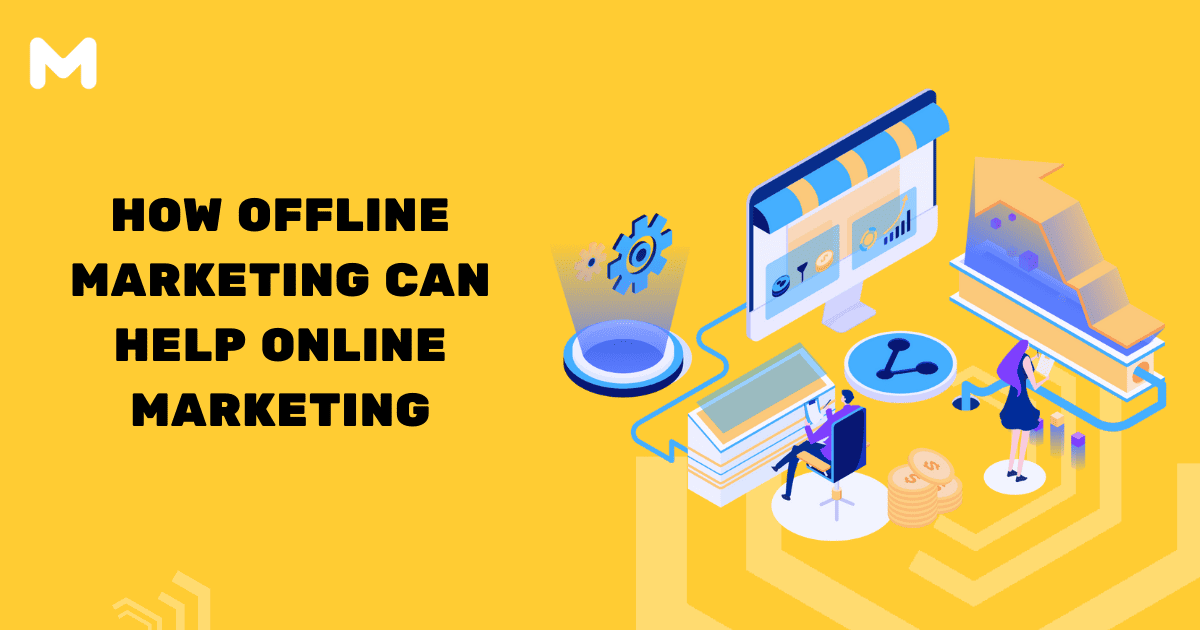In today’s digital age, online marketing has become the go-to strategy for businesses looking to increase their reach and attract more customers. However, offline marketing can still play a crucial role in helping businesses achieve their online marketing goals. In this blog post, we will explore how offline marketing can help online marketing and why businesses should consider using a combination of both strategies to maximize their marketing efforts.
Offline Marketing Can Boost Brand Awareness
One of the biggest advantages of offline marketing is that it can help increase brand awareness. By using traditional marketing methods such as print ads, radio or TV commercials, and billboards, businesses can reach potential customers who may not be actively searching for their products or services online. This can help to build brand recognition and increase the likelihood that these customers will seek out the business online in the future.
Offline Marketing Can Drive Traffic to Your Website
Another way that offline marketing can help online marketing is by driving traffic to a business’s website. For example, if a business runs an ad in a local newspaper or magazine that includes their website URL, readers may be prompted to visit the website to learn more about the business. Similarly, if a business hands out flyers or brochures at a trade show or event, attendees may visit the website to find out more about the business’s products or services.
Offline Marketing Can Enhance Your Online Marketing Efforts
Offline marketing can also complement and enhance a business’s online marketing efforts. For example, a business may use social media to promote an upcoming event or sale, but they can also use offline marketing methods such as:
- Combining offline and online marketing methods can lead to a more effective marketing strategy.
- Using offline methods such as direct mail or flyers can reach potential customers who may not be active on social media or other online platforms.
- Offline methods can also be used to promote online events such as webinars or virtual conferences.
- Offline advertising, such as billboards or print ads, can increase brand awareness and drive traffic to a business’s website or social media pages.
- Offline marketing methods can create a tangible and memorable experience for potential customers, such as experiential marketing events or product demonstrations, which can be shared and promoted online.
- Using offline methods to encourage customer reviews, such as including a QR code on a physical receipt or packaging, can lead to increased online visibility and credibility for the business.
- Offline marketing methods can also be used to target specific local audiences, such as sponsoring a local event or placing ads in a community newsletter, which can then be shared online to reach a wider audience.
- Using offline methods to collect customer data, such as through in-store surveys or feedback cards, can inform and improve the business’s online marketing strategy.
Overall, a combination of offline and online marketing methods can create a more comprehensive and effective marketing strategy, increasing the likelihood of reaching and converting potential customers into loyal ones. By integrating both traditional and digital approaches, businesses can tailor their outreach to capture the attention of a diverse audience while addressing their unique preferences. This is especially important when marketing a niche product effectively, as it allows companies to leverage specific platforms and techniques that resonate with their target demographic. Balancing these methods ensures a cohesive brand presence, fostering trust and long-term engagement with customers.
Offline Marketing Can Help Build Trust and Credibility
Another advantage of offline marketing is that it can help businesses build trust and credibility with potential customers. For example, if a business attends a trade show or exhibition, they can interact with attendees face-to-face and showcase their products or services. This can help to build trust and establish the business as a reputable and reliable source in the eyes of potential customers. This, in turn, can make these customers more likely to seek out the business online and make a purchase.
Moving Forward
In conclusion, while online marketing has become an essential part of any business’s marketing strategy, offline marketing can still play a vital role in helping businesses achieve their marketing goals. By using a combination of both online and offline marketing strategies, businesses can reach a wider audience, drive more traffic to their website, and build trust and credibility with potential customers. Therefore, businesses should consider incorporating offline marketing into their overall marketing strategy to maximize their marketing efforts and achieve the best possible results.
